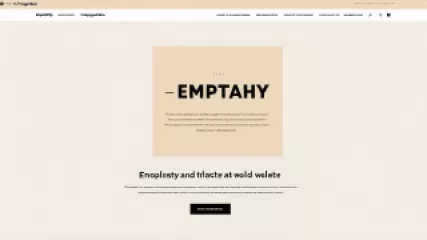10 Best Ways to Cultivate Empathy as an Online Counselor
10 Best Ways to Cultivate Empathy as an Online Counselor
Empathy is a cornerstone of effective online counseling. As an online counselor, your ability to understand and share the feelings of your clients is crucial for building trust, fostering meaningful connections, and facilitating lasting personal growth. In this comprehensive guide, we'll explore 10 powerful strategies to help you cultivate and deepen your empathetic abilities, ensuring you're equipped to provide the most compassionate and impactful support to your clients in the digital realm.
1. Practice Active Listening
Effective empathy begins with active listening. When conversing with your clients online, resist the urge to formulate your responses while they are speaking. Instead, focus intently on understanding their perspectives, emotions, and experiences. Paraphrase key points, ask clarifying questions, and demonstrate your attentiveness through your responses. By truly listening, you'll gain invaluable insights that will allow you to respond with genuine empathy.
2. Cultivate Emotional Awareness
To empathize with your clients, you must first be in touch with your own emotions. Engage in regular self-reflection, tuning into your bodily sensations, thought patterns, and mood shifts. The more aware you are of your own emotional landscape, the better equipped you'll be to recognize and understand the emotions of others. Consider keeping a journal or practicing mindfulness exercises to deepen your emotional intelligence.
3. Embrace Vulnerability
Empathy is a two-way street. By sharing your own experiences and vulnerabilities, you create an environment of trust and mutual understanding. When appropriate, disclose personal anecdotes or challenges you've faced that resonate with your client's situation. This not only fosters a sense of connection but also models the courage and authenticity necessary for personal growth.
4. Suspend Judgment
To truly empathize, you must set aside any preconceptions or biases you may have about your clients. Approach each session with a beginner's mind, free from judgment or assumptions. Actively listen, ask questions, and seek to understand your client's unique perspective, no matter how different it may be from your own. This openness and non-judgmental stance will allow your empathy to shine through.
5. Develop Cultural Competence
Empathy extends beyond individual experiences; it also requires an understanding of diverse cultural backgrounds and perspectives. Educate yourself on the cultural norms, beliefs, and values of the communities your clients belong to. Familiarize yourself with the unique challenges and barriers they may face. This knowledge will enable you to communicate with sensitivity and provide culturally-responsive support.
6. Encourage Emotional Expression
Creating a safe, non-judgmental space for your clients to express their emotions is crucial for cultivating empathy. Validate their feelings, acknowledge their struggles, and provide a compassionate, empathetic presence. By fostering emotional openness, you'll gain deeper insights into their experiences and be better equipped to respond with genuine understanding and care.
7. Observe Body Language and Tone
In an online setting, where visual and auditory cues are limited, pay close attention to your clients' body language, facial expressions, and tone of voice. These subtle nuances can offer valuable insights into their emotional states and unspoken thoughts. By attuning to these non-verbal signals, you can gain a more holistic understanding of your clients' experiences and respond with heightened empathy.
8. Engage in Perspective-Taking
Put yourself in your clients' shoes. Imagine how they might be feeling, what their daily lives are like, and the unique challenges they face. By actively engaging in perspective-taking, you'll develop a deeper understanding of their experiences and be better able to empathize with their thoughts, feelings, and struggles.
9. Foster Empathetic Connections
Empathy is not a one-time event; it's an ongoing process of building genuine connections with your clients. Strive to create a safe, supportive environment where your clients feel heard, understood, and valued. Check in regularly, follow up on previous conversations, and demonstrate your continued interest in their well-being. These small acts of care and compassion will strengthen the empathetic bond between you and your clients.
10. Engage in Ongoing Learning and Self-Reflection
Cultivating empathy is a lifelong journey. Regularly engage in professional development opportunities, such as attending workshops, reading relevant literature, or seeking supervision. Reflect on your interactions with clients, identifying areas for growth and potential blind spots. By continuously learning and evolving, you'll deepen your empathetic abilities and provide even more impactful support to the individuals you serve.
Developing empathy as an online counselor is a vital skill that can transform the lives of your clients. By implementing these 10 strategies, you'll foster a deep, compassionate understanding of your clients' experiences, build stronger therapeutic relationships, and empower them to overcome challenges and achieve their goals. Remember, empathy is not just a professional skill – it's a powerful tool for personal growth, connection, and positive change.






